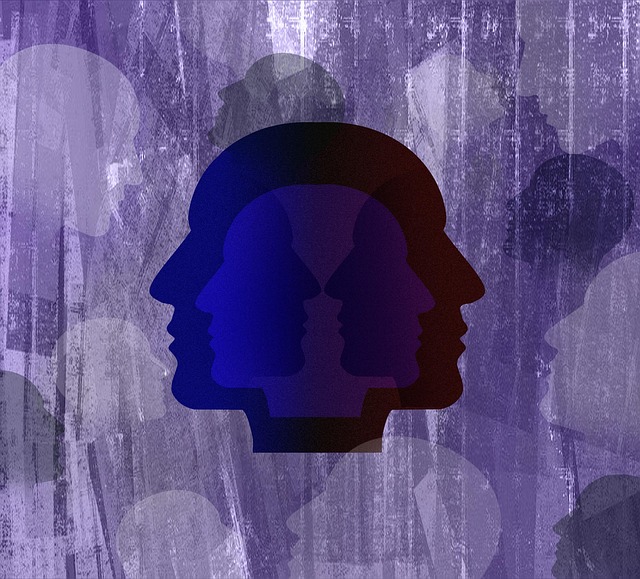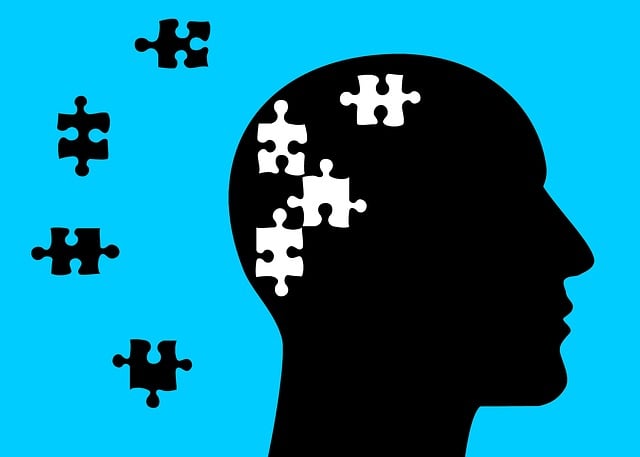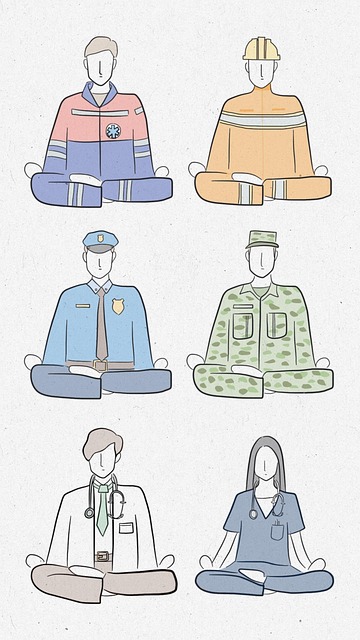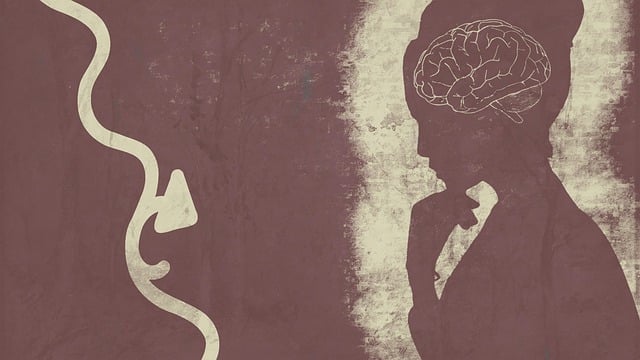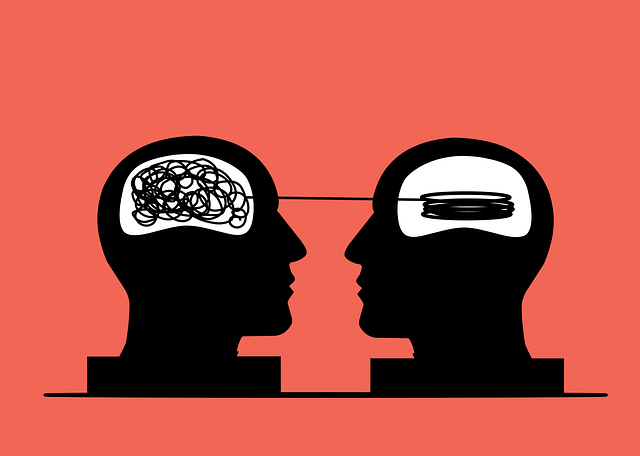Lafayette ADD-ADHD Therapy emphasizes cultural sensitivity as a cornerstone for effective treatment, recognizing that each client's mental health journey is shaped by their unique background. Therapists create inclusive environments by understanding and adapting practices to diverse cultural expressions of mental health issues. This approach enhances mood management, navigates ethical complexities, prevents therapist burnout, and ensures tailored care. Through mindfulness meditation, mood management techniques, and a Community Outreach Program offering Social Skills Training, Lafayette ADD-ADHD Therapy breaks down cultural gaps, providing compassionate support tailored to individual needs in an era of increasing social diversity.
In a world growing increasingly interconnected, cultural sensitivity is paramount in mental healthcare. The article explores this critical aspect, focusing on Lafayette ADD-ADHD Therapy’s approach to serving a diverse range of clients. We delve into understanding cultural diversity, its impact on therapy for conditions like ADD/ADHD, and the challenges—and misconceptions—in cross-cultural communication. Additionally, we offer strategies for culturally competent practice and emphasize the importance of building inclusive mental health services.
- Understanding Cultural Diversity in Mental Healthcare
- The Impact of Cultural Sensitivity on ADD/ADHD Therapy
- Challenges and Misconceptions in Cross-Cultural Communication
- Strategies for Culturally Competent Practice at Lafayette ADD-ADHD Therapy
- Building Bridges: Fostering Inclusivity in Mental Health Services
Understanding Cultural Diversity in Mental Healthcare

In the diverse landscape of mental healthcare, understanding cultural sensitivity is paramount to delivering effective and compassionate treatment. The Lafayette ADD-ADHD Therapy community recognizes that each individual’s experience with mental health is deeply influenced by their cultural background, beliefs, and traditions. This cultural diversity enriches our practice but also demands a nuanced approach to care. By embracing this diversity, therapists can create a safe and inclusive environment where clients feel heard and understood, fostering better engagement and outcomes in therapy.
Mental Health Awareness plays a pivotal role in this process, as it helps us recognize the unique presentation of mental health issues across cultures. For instance, symptoms of depression or anxiety might manifest differently among individuals from various ethnic or socioeconomic backgrounds. This awareness guides therapists in adapting their practices to respect and accommodate these variations, ensuring that interventions are culturally relevant and effective. Moreover, preventing burnout among healthcare providers is enhanced by cultural sensitivity training, empowering them to navigate complex ethical dilemmas and deliver care tailored to each client’s specific needs, ultimately improving mood management outcomes.
The Impact of Cultural Sensitivity on ADD/ADHD Therapy

Cultural sensitivity plays a pivotal role in the effectiveness of ADD/ADHD therapy, ensuring that treatments are tailored to meet the unique needs of diverse individuals. In Lafayette ADD-ADHD Therapy, understanding cultural contexts is essential because symptoms and expressions of ADHD can vary greatly across different ethnic and socio-cultural groups. For instance, certain cultural practices may influence how a person presents their challenges or copes with stress, which could impact the diagnosis and treatment plan. Therapists who are culturally sensitive are better equipped to recognize these nuances, adapt evidence-based practices, and foster more inclusive and effective interventions.
Integrating mindfulness meditation and mood management techniques, as advocated in Mental Health Policy Analysis and Advocacy, can be particularly beneficial when culturally tailored. These approaches allow therapists to work collaboratively with clients from various backgrounds, promoting self-awareness, emotional regulation, and stress reduction. By combining such practices with a deep understanding of cultural sensitivity, therapists can create a safe and supportive environment that enhances therapeutic outcomes for individuals navigating ADD/ADHD within their specific cultural frameworks.
Challenges and Misconceptions in Cross-Cultural Communication

Cultural sensitivity is a cornerstone in mental healthcare practice, especially when working with diverse communities, as misconceptions and challenges often arise from cross-cultural communication. One significant hurdle is the lack of understanding or misperceptions about different cultural beliefs and practices related to mental health. For instance, some cultures may view mental illness through a spiritual or traditional lens, while others might have distinct social norms around expressing emotions. These differences can create barriers in establishing trust and effective treatment plans.
At Lafayette ADD-ADHD Therapy, we recognize the importance of breaking down these communication barriers. Our Community Outreach Program Implementation aims to bridge cultural gaps by offering Social Skills Training tailored to diverse communities. By fostering open dialogues and promoting understanding of emotional healing processes across cultures, we strive to ensure that every individual receives compassionate care. We believe that addressing these misconceptions is vital for providing inclusive and effective mental healthcare services.
Strategies for Culturally Competent Practice at Lafayette ADD-ADHD Therapy

At Lafayette ADD-ADHD Therapy, we prioritize cultural sensitivity as a cornerstone of our mental healthcare practice. Our strategies for culturally competent care involve deep listening and open communication to understand each client’s unique background, beliefs, and experiences. By incorporating these insights into treatment plans, we ensure that therapeutic approaches are not just effective but also respectful and relevant to the individual’s cultural identity.
We emphasize the importance of a comprehensive risk assessment for mental health professionals, considering the potential cultural biases that could impact their practice. This includes training staff on self-care practices to prevent burnout, which is essential for maintaining emotional healing processes both within the therapists and among our clients from diverse cultural backgrounds. Through these initiatives, Lafayette ADD-ADHD Therapy strives to create a safe and inclusive environment where everyone can receive the highest quality of mental healthcare tailored to their specific needs.
Building Bridges: Fostering Inclusivity in Mental Health Services

In an increasingly diverse society, mental healthcare practices must evolve to become more inclusive and culturally sensitive. Building bridges between therapists and clients from various backgrounds is essential for effective treatment and emotional well-being promotion techniques. By understanding and appreciating cultural differences, professionals can create a safe and supportive environment, fostering trust and encouraging open communication. This approach is particularly significant in addressing the mental illness stigma reduction efforts, as it promotes equal access to care and supports individuals in seeking help without fear of judgment or discrimination.
For instance, therapists providing Lafayette ADD-ADHD therapy should be equipped with conflict resolution techniques that respect cultural norms and values. Recognizing and accommodating individual differences can prevent misunderstandings and facilitate a deeper connection between therapist and client. Through these inclusive practices, mental healthcare services can revolutionize the way they support clients, ensuring everyone receives personalized care tailored to their unique needs and backgrounds.
Mental healthcare practices, including therapy for conditions like ADD/ADHD, must embrace cultural sensitivity to provide effective and inclusive care. As societies become increasingly diverse, it’s essential for professionals at Lafayette ADD-ADHD Therapy and elsewhere to understand and navigate cross-cultural communication challenges. By implementing culturally competent strategies, as discussed in this article, mental health services can build bridges to foster an environment where all individuals feel understood and supported, ultimately enhancing the accessibility and quality of care offered.
